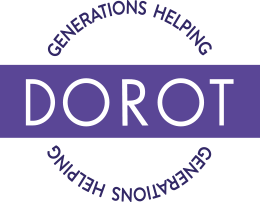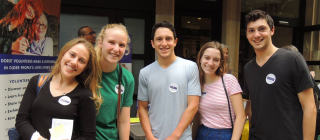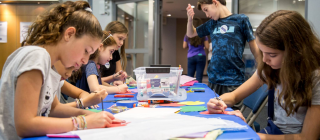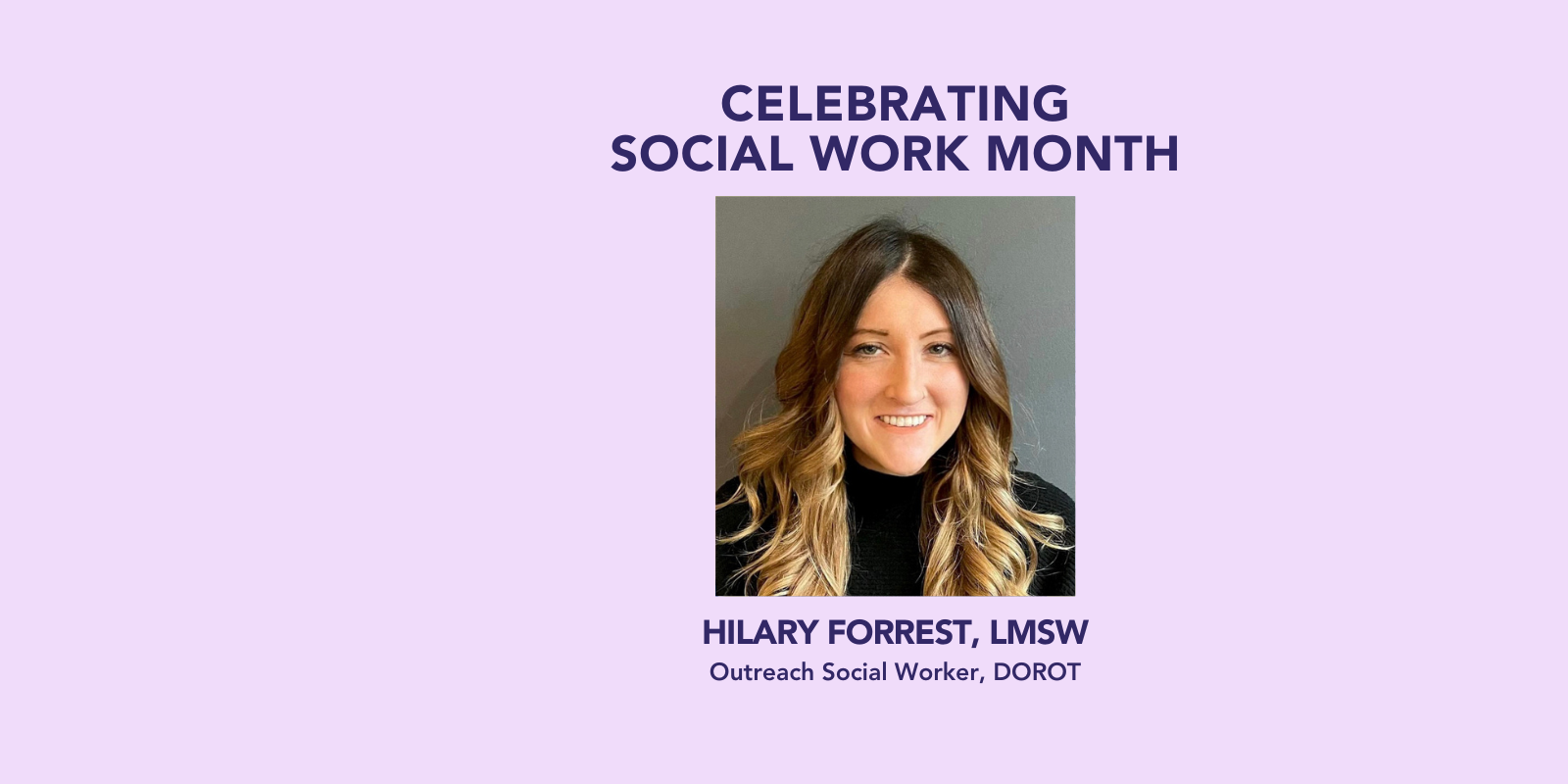Social Work Month continues during this last week of March!
Meet Hilary! Hilary Forrest, LMSW, works as an Outreach Social Worker within our Synagogue Partnership Outreach team. Hilary, alongside her team, leads partnerships with local synagogues in NYC to support older adult community members.
Get to know Hilary below:
Tell us about yourself.
Hilary: I’m a passionate social worker and advocate. I’m originally from Albany, New York, and made my way back to New York City after graduating from the University of Michigan, where I received my dual master’s degrees in social work and Jewish Studies.
Following my time at university, I lived in Israel for 1.5 years. During this time, I delved into research on the Middle Eastern conflict while also teaching English to K-5th graders. This experience deeply influenced my commitment to fostering cross-community dialogue and utilizing the power of people and community relations to navigate challenging conversations and promote co-existence.
While earning my graduate degree, I focused my concentration on macro/policy social work and completed field placements at Jewish Family Services of Ann Arbor and OneTable New York. I joined DOROT 2 years ago and am thrilled to be part of this team!
Which program do you work in?
Hilary: I work in DOROT’s Synagogue Partnership Outreach Team within the Client and Constituent Services Department. Jane, my colleague, and I support DOROT’s 8 synagogue partners. My focus is on the congregants of Ansche Chesed, Romemu, and Park Avenue Synagogue. I love my role at DOROT and the opportunity to work with so many diverse and unique institutions across Manhattan. Each one of our synagogue partners is incredible and special in their own way.
How does social work inform your work?
Hilary: I think that people who join a synagogue are looking for something – whether it’s community, connection, spirituality, a third place, belonging, etc. Social work involves assessing the needs of communities and individuals and recognizing that older adults seek connection and support in various ways. It’s also what makes synagogues a pivotal place to introduce DOROT’s incredible programs and services, ultimately helping older adults find the social connection and purpose so many of them seek.
Having a social worker there adds a layer of professional support and mental health services to the pastoral counseling that clergy members already offer. Whether it’s offering case assistance, welcoming congregants into a Friendly Visiting match, curating a synagogue-led package delivery, or leading a support group for synagogue members, I love knowing that congregants can benefit from DOROT’s mission and even create connections beyond the scope of their synagogue and generation.
By working closely with clergy members, lay leaders, and dedicated volunteers, we’re able to identify the specific needs of congregants and refer them to appropriate DOROT programs or even create new programs to address unmet needs.
How does your background in social work inform what you do?
Hilary: At the core of social work is understanding the importance of individuals, their complexities, and navigating the unique environment and experiences they live within so that we can meet their needs - whether it’s clients, colleagues, or community partners.
I believe that every day I use my client-centered approach and skills in navigating complex relationships with each constituent to better understand how I can serve them and meet them where they are in life.
Whether it’s from a more systemic (macro) or individual-based (micro) level, I believe social workers add value with our ability to center people and the things that drive one's beliefs and behaviors when it comes to building community or creating any level of concrete change for the better of society.
What do you find most fulfilling about your work?
Hilary: I love being a social worker because it gives me a way to feel like I'm making a tangible difference in at least one person’s life every day. The home visits and relationships I build with constituents at DOROT I feel (and hope) are as fulfilling for the older adult as I know they are for me.
I can honestly say that getting to interact with older adults professionally and personally has helped me to become a more aware and well-informed individual because I’m able to tap into conversations about history, culture, and life that came before me and rethink the way I see life through my eyes. In a world often dominated by social media and digital interactions, I appreciate every opportunity DOROT gives me to facilitate genuine dialogue and connection between different generations.
Especially at this time in the world, there is so much need for love, connection, and healing. I recognize the importance of preserving the stories and experiences of older adults, including Holocaust survivors, whom I’m so fortunate to serve. By listening to and documenting their narratives, I feel that I’m contributing to the preservation and collection of their memory and history, which I believe at this time is more important than ever.
Thank you Hilary and to the rest of the Synagogue Partnership Outreach team!




